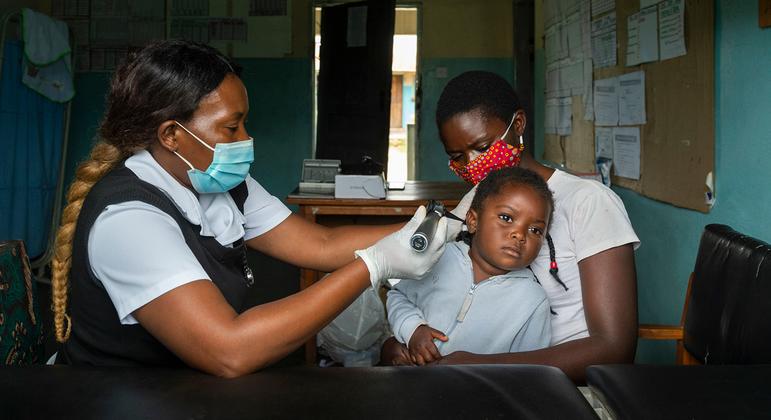WHO calls for action to stop rising hearing loss in Africa


Hearing loss costs the continent $27 million a yearprofound impact on life and the economy, according to reportwas launched at the Africa Summit on Hearing Impairment in Nairobi, Kenya.
Widespread hearing loss disproportionately affects poor and vulnerable populations. WHO warns that without urgent intervention, the situation will continue to escalate, widening existing inequalities in access to health services.
Disadvantaged children
UN agency speak Hearing loss has far-reaching consequences for children, including delayed language development, which in turn increases the risk of poor educational outcomes and limited future career prospects.
Meanwhile, adults with untreated hearing loss often face isolation, loneliness and an increased risk of depression and dementia.
The report details many factors leading to the increase in hearing loss in the WHO African Region, which includes 47 countries. Chief among them is the severe shortage of ear and hearing care (EHC) professionals as well as the uneven distribution of the available workforce, primarily in urban areas.
Lack of experts
For example, more than 56% of African countries have just one ear, nose and throat (ENT) specialist per million people, while in Europe the number is about 50 per million.
Meanwhile, more than three-quarters of countries have less than one audiologist and one speech therapist for every million people.
And Although 33 million Africans could benefit from hearing aids, only about 10% have access due to lack of EHC funding and therefore high costs.
Lack of newborn screening
The report notes that among children living in low- and middle-income countries, Up to 75% of hearing loss is due to preventable causes such as infections and common ear diseases as well as birth complications. However, most countries do not conduct routine hearing screening for newborns.
Even in countries with EHC programs, relevant interventions are not integrated into school and workplace health programs or healthy aging programs.
This challenge is further complicated by the lack of national policies and plans to increase EHC provision, and implementation is low even where it exists. Additionally, 35% of countries have no budget allocated for EHC activities, meaning patients must bear the full cost of treatment and care.
Advocacy, integration and finance
The report contains a number of recommendations. For example, countries should leverage these findings to promote action at the highest level, including advocating for policies focused on EHC and related activities.
EHC also needs to be urgently integrated into existing programs to optimize the use of scarce resources, and governments should explore public-private partnerships to enhance services.
The report also emphasizes the need for dedicated financial resources for EHC, equipping facilities, providing products and technology, and many other measures.




